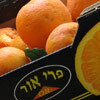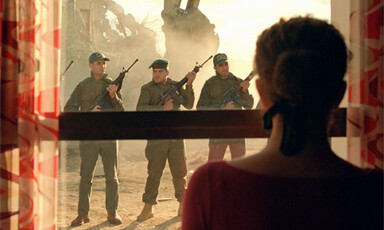
Truth in labeling: EU court challenges "Made in Israel"
10 March 2010
On 25 February, the European Court of Justice ruled that imports manufactured in Israeli settlements in the occupied West Bank shouldn’t benefit from a trade agreement between Israel and the European Union. The ruling follows protests of Israel’s export of products from the illegal settlements in the Occupied Palestinian Territories (OPT) to the EU and Switzerland labeled as “Made in Israel.” Products labeled as such benefit from favorable import taxes under the EU-Israel Association Agreement of 2000. Phon van den Biesen and Adri Nieuwhof comment for The Electronic Intifada. Read more about Truth in labeling: EU court challenges "Made in Israel"








